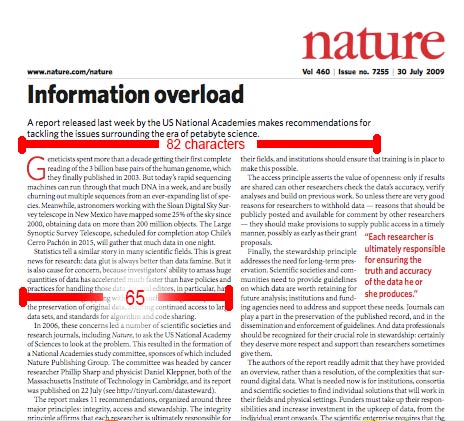
I work with a team of philosophers. During a recent discussion, we settled on a philosophy that I think is important to share with anyone interested in design for the web or creating software. It may sound strange when you hear it so I want to explain first. You see, technology is alway changing and this makes “Knowing” anything dangerous. I use the word “Knowing” in quotes with a capital K to differentiate it from the word knowing as you might commonly use it.

Source: Dictionary.com via Google
To know something is to be aware. Ideally this awareness comes through your own observation, but it can also come through the observation of others who communicate it to you through argument, debate, and discussion. Since we can never completely observe reality, not even in theory (since scientists tell us the very act of observation changes reality at the smallest levels), we can never completely, 100%, “Know” anything. Don’t misunderstand me, we obviously require an amount of certainty in order to take action and to function as humans. We only have one life and we can not risk it crossing the street unless we “Know”, for sure, that it is safe to cross. Knowledge protects us, it strengthens our resolve, it propels us to action.
In real life, we must make certain everyday assumptions: the air we breath did not turn poisonous between breaths; gravity will continue to work today the same way it worked yesterday. But we never fully “Know”, with a capital letter K and we should not pretend to. To Know is to be certain beyond the need for further evidence, argument, research, or discussion. When you “Know” something, you begin to lose patience with those wishing to keep the debate open. You can see why this type of Knowledge can become dangerous. Knowledge is a Pursuit, not a destination you can ever fully arrive at – like a hyperbolic curve approaching an asymptote, we may never fully get there, but we do get close enough to remove reasonable doubt, to act with confidence, while still keeping our eyes and minds open for new information. Experience is important, information is important, but Knowing – Knowing with absolute certainty is dangerous because it closes the mind to new information.
As humans, when we try to seek out and protect a particular type of knowledge that we call the “truth”.
Truth is valid knowledge.
Knowing the truth then is being aware of reality through observation, inquiry, or information. We learn overtime to trust our intuition about the world and over time we feel safe enough to proclaim certain things as truth but we must always be on guard against over using the Truth label. Truth is not something you know, but something you pursue. The pursuit of truth is science. But the moment you think arrive at truth, it becomes something else – something unscientific. Science is the constant pursuit of truth which recedes like the horizon. We can see the horizon. We can move towards it. But we can never reach it. This is not a fuzzy call to undermine faith in reality. But a reminder to always seek new evidence to reinforce even the most well travelled truths.
Why does a web designer need to split these hairs?
This conversation is important because as designers, we make decisions that impact the lives of millions of people. To make these decisions we need to be confident that we have found the right solution to the right problem. But we must never fully close the door to new information. We must be confident enough to promote and defend the designs we craft, but never so arrogant that we stop seeking more information and validation. The constant, un-ending pursuit of knowledge is the core activity that drives user centered design. The moment you find yourself “knowing” what is best for the users, take a note to validate that by actually asking the users and listening to what they have to say. If it has been more than a month, or a year since you spoke to a real user and validated some of your core assumptions about what they like and do not like, your not doing your job. You do not have to slow down or stop the project, but remind yourself that in the end, you do not own the site – the user does. While you can approach knowledge of who they are and how they will react and understand the page, you will never fully get there. There SHOULD always be doubt. And when in doubt, ask the user.


If you’d like your own personal acquire so you can get extraordinary attention by we, you are able to want to atart exercising. in your offers in your acquire along with be sure that you’ll get the perfect stage during school. guidebook all of us a whole bunch with regard to any kind of submitting guidebook…